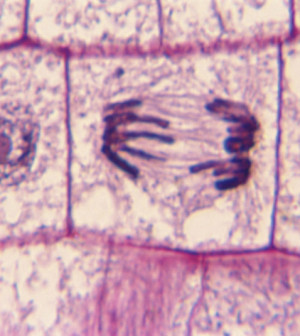- Double Mastectomy May Offer No Survival Benefit to Women With Breast Cancer
- Toxic Lead Found in Cinnamon Product, FDA Says
- Certain Abbott Blood Sugar Monitors May Give Incorrect Readings
- Athletes Can Expect High Ozone, Pollen Counts for Paris Olympics
- Fake Oxycontin Pills Widespread and Potentially Deadly: Report
- Shingles Vaccine Could Lower Dementia Risk
- Your Odds for Accidental Gun Death Rise Greatly in Certain States
- Kids From Poorer Families Less Likely to Survive Cancer
- Tough Workouts Won’t Trigger Cardiac Arrest in Folks With Long QT Syndrome
- At-Home Colon Cancer Test Can Save Lives
Animal Study Hints at Gene Therapy’s Possible Promise for Alzheimer’s

Gene therapy might one day offer a way to prevent and treat Alzheimer’s disease, new research in mice suggests.
Scientists at Imperial College London used a modified virus to deliver a gene called PGC1-alpha into the brain cells of mice. Previous research suggests this gene may prevent the formation of a protein called amyloid-beta peptide.
It’s the main component of amyloid plaques, the sticky clumps of protein in the brains of Alzheimer’s disease patients. These plaques are thought to cause brain cell death.
These very early findings could lead to a way of preventing Alzheimer’s or stopping it in the early stages, according to study senior author Magdalena Sastre.
Alzheimer’s is the most common type of dementia. It causes memory loss, confusion, and changes in mood and personality. There is no cure.
“There are many hurdles to overcome, and at the moment the only way to deliver the gene is via an injection directly into the brain,” Sastre said in a college news release.
It’s also important to note that therapies that look promising in mice often don’t work in humans.
“However, this proof-of-concept study shows this approach warrants further investigation,” she added. Sastre is a senior lecturer in the department of medicine.
David Reynolds, chief scientific officer for Alzheimer’s Research UK, said studies like this one are important because current treatments do not stop progression of Alzheimer’s damage.
“This research sets a foundation for exploring gene therapy as a treatment strategy for Alzheimer’s disease, but further studies are needed to establish whether gene therapy would be safe, effective and practical to use in people with the disease,” Reynolds said in the news release.
The study was published Oct. 10 in the journal Proceedings of the National Academy of Sciences.
More information
The U.S. National Institute on Aging has more about Alzheimer’s disease.
Source: HealthDay
Copyright © 2024 HealthDay. All rights reserved.










